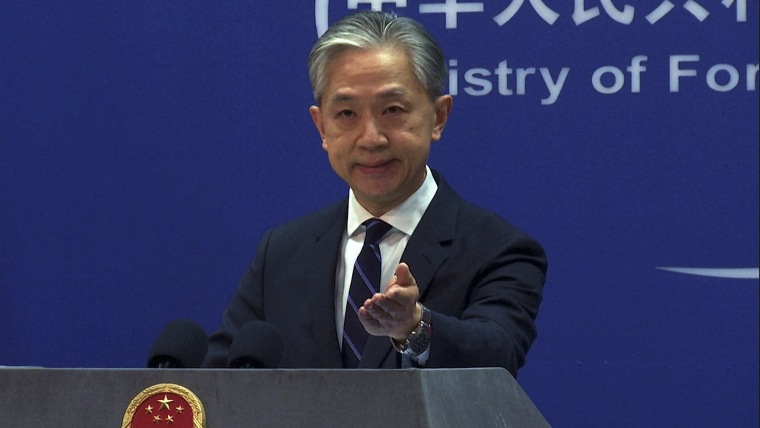[ad_1]
Playing ‘both sides’ of the balloon
Many countries in Asia and beyond also see U.S.-China tensions as standing in the way of progress on issues of global importance like climate change and public health, and have urged greater communication.
Vietnam said it hoped that Beijing and Washington would continue to resolve disagreements through dialogue, while Singaporean Foreign Minister Vivian Balakrishnan lamented the U.S. decision to postpone Secretary of State Antony Blinken’s trip to China over the balloon incident.
“The more they engage, the more they meet, the more open lines of communications, the better,” he told reporters.
China, meanwhile, is moving ahead with other diplomatic efforts.
Xi met in Beijing this week with Iranian President Ebrahim Raisi, and China’s top diplomat, Wang Yi, is on a weeklong trip to Europe that includes a stop in Russia in what could be a precursor to a Moscow trip by Xi. China, Iran and Russia often present themselves as counterbalancing Washington’s global dominance.
Many countries view the world as increasingly multipolar and are seeking to diversify their diplomatic ties, said Madiha Afzal, a foreign policy fellow at the Brookings Institution in Washington.
“They don’t see this world now as being led by China or led by the U.S. only,” she said. “It benefits them to have relationships on both sides.”
Talk of an emerging cold war between the U.S. and China has also raised suggestions of a new “nonaligned movement” of countries that hope to stay out of it.
During the decadeslong conflict between the U.S. and the Soviet Union, 120 mostly developing countries — many of them newly independent — established a loose coalition by that name that is now one of the largest international forums in the world.
Countries torn between the U.S. and China are reluctant to choose sides mainly for economic reasons, said Wu Xinbo, director of the Center for American Studies at Fudan University in Shanghai.
“They basically cannot live without the U.S., but they are also inseparable from China, because China is the largest trading partner of more than 120 countries and regions,” he said.
He cited sweeping U.S. export controls on strategically important semiconductor chips that are pushing China to develop its own technology, which Wu said could “divide the world into different parts economically.”
In that context, Afzal said, harsh U.S. criticism of other countries’ relationships with China could backfire. The U.S.-China competition for allegiance might also “grant undue leverage” to the more powerful countries that resist taking sides, she said.
Balakrishnan, the Singaporean foreign minister, argued for a new “nonaligned movement” at a conference late last year, emphasizing the importance of international cooperation for science, technology and supply chains.
“I don’t believe any self-respecting Asian country wants to be trapped, or to be a vassal, or worse, to be a theater for proxy battles,” he said. “Whether we will actually achieve this, only time will tell.”
Jennifer Jett and Larissa Gao reported from Hong Kong, and Megan Lebowitz from Washington.
Arata Yamamoto, Peter Alexander and Andy Eckardt contributed.
[ad_2]
Source link

